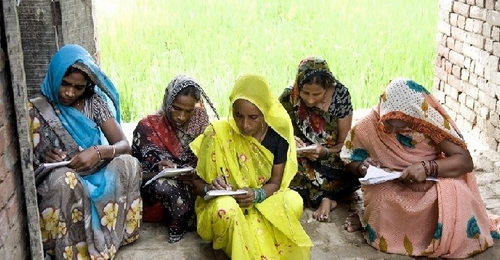UNESCO names laureates from Thailand and Peru for its 2017 Prize for Girls and Women’s Education
UNESCO Director-General Irina Bokova has announced the names of the two laureates for the 2017 edition of the UNESCO Prize for Girls’ and Women’s Education. An International Jury recommended the two laureates for their innovative and sustainable projects in advancing girls’ and women’s education.

The Development and Education Programme for Daughters and Communities Center in the Greater Mekong Sub-Region (DEPDC/GMS) in Thailand is recognized for its project entitled “Education and Life Skills Training Programme to Help Stateless Children and Women Migrating from Shan State to Thailand”. The innovative project uses education and life skills training to protect migrant girls and women from the risks of human trafficking and sexual or labour exploitation. It also works on the rehabilitation of girls and women who have fallen prey to these abuses. It is recognized as a model that can be replicated in the country and elsewhere in the world.
The Mini Academy of Science and Technology – MaCTec Peru is commended for its “Mobile MaCTec Bus Labs/Mini Academy of Science and Technology” project to empower girls from rural areas through quality science education and reduce the gender gap in science, technology, engineering and mathematics (STEM). The project has been developed in partnership with state authorities, private donors and the academic community. It is scalable and can be replicated in other countries.
The two organizations will each receive an award of USD 50,000 at an official ceremony in Xiamen, People’s Republic of China, on 5 September 2017.
The UNESCO Prize for Girls’ and Women’s Education rewards innovative, outstanding projects advancing girls’ and women’s education. It contributes to two Sustainable Development Goals (SDGs): “Ensure inclusive and equitable quality education and promote lifelong learning opportunities for all” (Goal 4) and “Achieve gender equality and empower all women and girls” (Goal 5).
Established in 2015 by the UNESCO’s Executive Board, the Prize is funded by the Government of the People’s Republic of China and was awarded for the first time in 2016 to two outstanding projects from Indonesia and Zimbabwe.
Source: United Nations Educational Scientific and Cultural Organization
- 505 reads
Human Rights
Ringing FOWPAL’s Peace Bell for the World:Nobel Peace Prize Laureates’ Visions and Actions

Protecting the World’s Cultural Diversity for a Sustainable Future

The Peace Bell Resonates at the 27th Eurasian Economic Summit

Declaration of World Day of the Power of Hope Endorsed by People in 158 Nations

Puppet Show I International Friendship Day 2020

